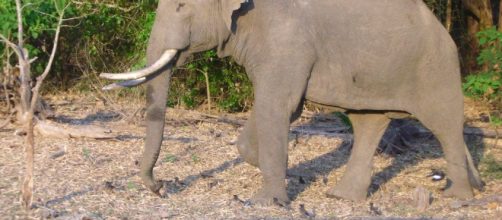One of the oldest elephants in Africa was Killed in Kenya. The elephant, which was one of the largest ones of its kind, was killed by Poachers, according to a conservation group that protects the elephants. Richard Moller, of the Tsavo Trust, said the elephant, named Satao II, was found dead and they believe poachers shot it with a poisoned arrow.
Moller said the poachers were not able to recover the ivory from the elephant. He said this was because authorities were able to find the carcass before they did. Moller added that this was thanks to the work that they do with the Kenyan Wildlife Service.
Satao II was named after another giant elephant. Satao II's predecessor was also killed back in 2014. Satao II was about 50 years old and he roamed the Tsavo National Park.
Suspected poachers arrested
Thankfully, two suspected poachers were quickly apprehended. After the elephant's carcass was found during a routine aerial reconnaissance, the pair were captured. Moller said he was gutted and Satao II was very approachable. He said Satao II was easy to find, especially compared to the other elephants, which are usually more difficult to see.
The death of the elephant comes a few days after a KWS officer was killed. The officer was involved in an anti-poaching incident in the park. He was the second officer to die at the hands of poachers in less than a month.
Elephant populations have drastically fallen
In 2014, Satao the first was killed. At the time of his death, he was one of the largest elephants of his kind. Over the last 10 years, elephant populations have fallen by over 100,000 to 415,000. This is according to the International Union for Conservation of Nature.
Tuskers, the species of elephant that Satao II belonged to, are very large and their tusks are valuable. Their tusks often weigh well over 60lbs. In 2015, the price of ivory reached $1,100 per two-pounds on the black market. However, China has introduced a ban this year and prices will fluctuate.
Moller said as of now, there's only around 25 giant elephant tuskers in the world. The giants got their name because of the size of their tusks, which nearly touches the ground. In Kenya alone, there are only around 15 of them left. Moller described the tuskers are being icons and ambassadors for elephants.

